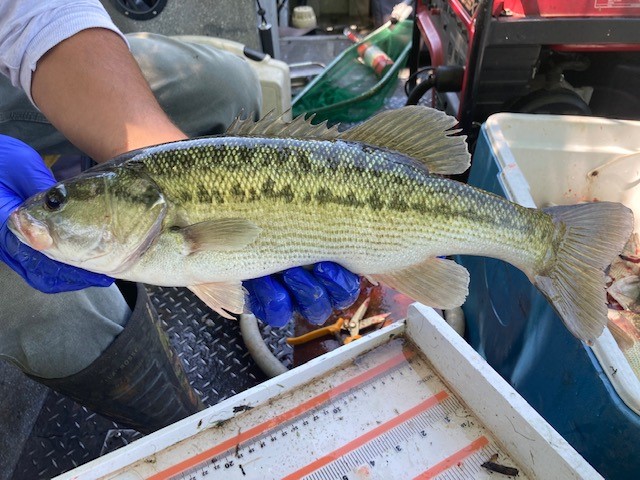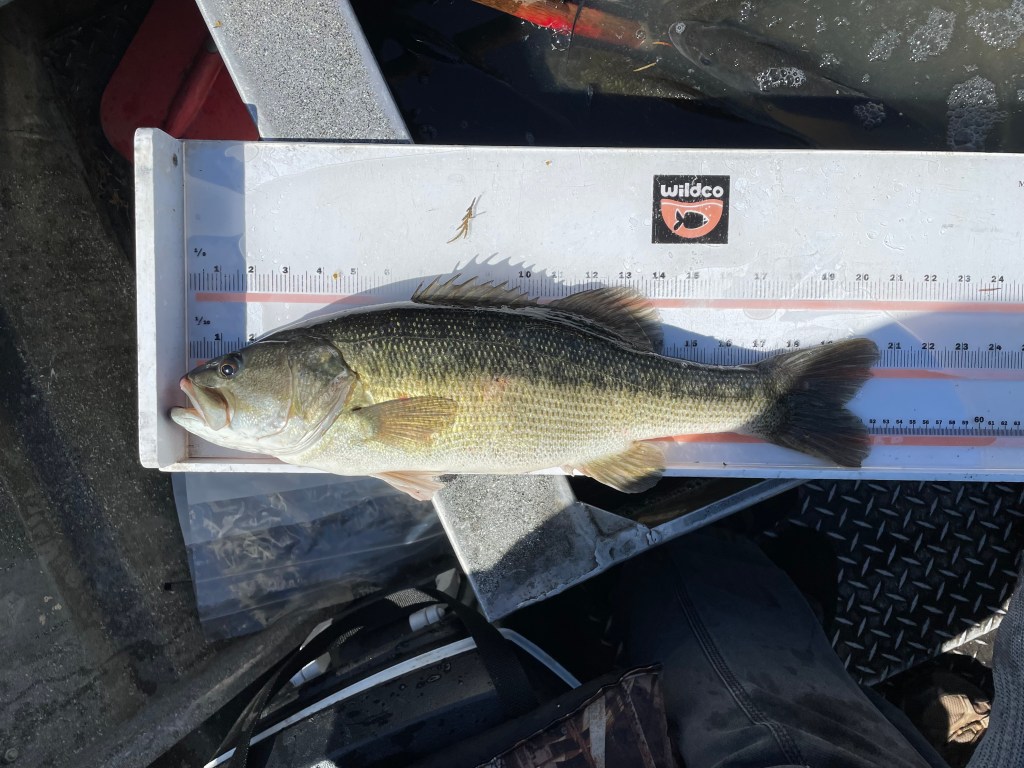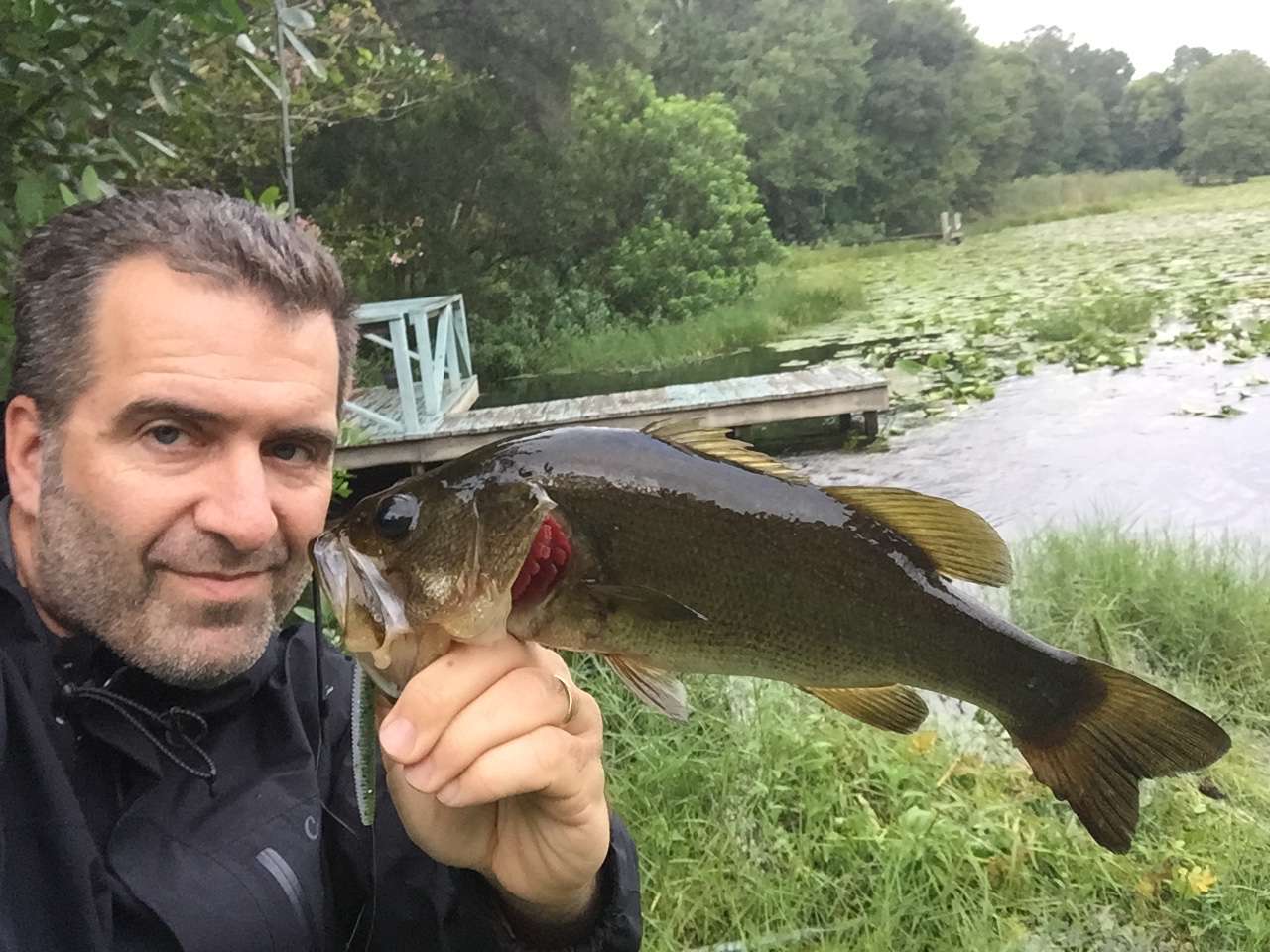
Alabama bass have gone by different names, but calling them a Trojan horse is no stretch.
Consider Homer’s tale from The Odyssey: Following an ineffective 10-year siege of Troy, the Greeks built a giant hollow horse and left it outside the city gates as an offering to Athena, the goddess or war. Assuming it was a gift, the Trojans wheeled the horse into their city and after dark, Greek soldiers hiding within emerged to attack Troy and open the gates for their fellow invaders.
(This was before the days of doorbell cameras.)
In modern times, everyone who’s touched a computer understands the Trojan horse reference (malicious code hidden within a seemingly benign process), but Jason Bettinger, Fisheries Coordinator with the South Carolina Department of Natural Resources said Alabama bass have a track record of bad behavior that is roundly unwelcome on South Carolina waters — including Lake Murray, the Saluda River reservoir hosting this week’s Bassmaster Elite event.
“We’re most worried about Lake Murray, because Lake Greenwood is above Lake Murray on the Saluda River and (Alabama bass) have been in Lake Greenwood for about 20 years,” Bettinger said. “They’re starting to show up in creel surveys in the Saluda River, below Lake Greenwood, which gives them unfettered access to Lake Murray.
“It’s actually kind of surprising that they haven’t shown up in numbers in Lake Murray to this point. They’re coming and we see anecdotal reports from anglers on social media showing that they caught an Alabama bass from Lake Murray; but we have not found them in our sampling as of yet.”
Important to note: While some incorrectly use the term “spotted bass” to describe the non-native fish threatening a Lake Murray expansion, Bettinger clarifies that we’re talking about (Micropterus henshalli), the fish originating in the Mobile River Basin (Mississippi, Alabama, and Georgia).
Not to be confused with Kentucky spotted bass (Micropterus punctulatus), Alabama bass grows larger than spots in their native range (up to 23 inches). Also, Alabama bass have a dark, blotchy lateral band head to tail, compared to the spot’s lateral stripe, which becomes less blotchy on the caudal peduncle (the “ankle” of a fish).
Once considered a subspecies of true spotted bass, the Alabama bass formerly was identified as Micropterus punctulatus henshalli, until officially listed as a unique species.
More is (not necessarily) better
For a lot of folks, a bent rod is a bent rod, so the thought of another species with “bass” in its name probably sounds encouraging. Sadly, such short-sightedness has spurred unauthorized — and highly illegal — Alabama bass introductions in reservoirs throughout the southeast.
In nearly every case, the newcomers have literally upended the fishery, as these super aggressive Alabama bass wreak havoc on other black bass species from smallmouth stocked by the SCDNR, to native largemouth and Bartram’s Bass (aka “redeye” bass).
“The impact of Alabama bass on largemouth is more related to competition causing displacement/replacement of (the native fish),” Bettinger said. “However, for other black bass of conservation concern (e.g., Bartram’s) and recreational importance (e.g., smallmouth bass) hybridization with Alabama bass can essentially extirpate those species from their native and introduced habitats.”
South Carolina pro Brandon Cobb offers supporting insight. Making his home in Greenwood, S.C., about an hour west of Murray, Cobb calls Lake Greenwood his home waters.
“Just knowing (how Alabama bass have impacted) Greenwood, it’s 100% bad,” Cobb said. “Greenwood was a 5-fish, 30-pound lake 5 years ago, but now you struggle to catch 15 pounds. I don’t know for certain that it’s the (Alabama bass), but it was coincidental timing.
“Up until about five years ago, nearly every tournament would take mid- to upper-20s. Now 15-17 pounds wins nearly everything. Tournaments are still won with largemouth, primarily, but (the presence of Alabama bass) has hurt the population.”
While the threat to South Carolina’s native largemouth and stocked smallmouth immediately resonates with tournament types, Bettinger points out a vibrant small stream fishery for the smaller Bartram’s bass.
“There is a segment of the angling population that likes to catch Bartram’s bass and, as an endemic species, we’d like to keep it around,” Bettinger said. “We’re concerned we’re going to lose this species altogether due to hybridization with Alabama bass.”

Documented impacts
Referencing a study on Alabama bass, recently published in the American Fisheries Society’s North American Journal of Fisheries Management, Bettinger said: “I don’t think there are any pros (to Alabama bass in state waters). It’s just negative impacts to our native black bass with Alabama bass.”
Examining relative abundance, creel data, and genetics data from southeastern reservoirs where Alabama bass have been introduced, the study described the spread of nonnative black bass, such as the Alabama bass, one of the greatest threats to conserving native black bass fisheries.
The findings: Largemouth bass relative abundance declined by 42–77% after Alabama bass introduction in four of five reservoirs, but total black bass relative abundance was unchanged in three of them, indicating that Alabama bass essentially replaced largemouth Bass.
“Once the Alabama bass are in one of our lakes, we don’t really have any ways to change the course,” Bettinger said. “They get in there and start reproducing and it’s like the horse is out of the barn.”
Take that, Trojan horse.
Simply not needed
What is to be gained, versus what is to be lost. Well, in the case of Alabama bass introduction, that decision’s not even on the table, as transplanting them is a big no-no, with legal ramifications.
Even from a philosophical standpoint, B.A.S.S. Conservation Director Gene Gilliland said there’s zero room for debate.
“B.A.S.S. is 100 percent opposed to anybody moving those fish,” Gilliland said. “The unintended consequences — we just don’t know what might happen. Is it worth sacrificing what is already a really good fishery on the chance that there is going to be a benefit from (Alabama bass) being in the lake?
“I think the downside vastly outweighs any potential positive. The premise for people moving fish is they think they’re going to make their lake better somehow. In the case of moving Alabama bass, the odds of that happening are very slim.”
Eschewing what he calls “bucket biology” — recreational anglers relocating forage and/or predators — Gilliland’s message resonates his three decades of fisheries management with the Oklahoma Department of Wildlife Conservation.
“We’re against the movement of any kind of fish; leave the biology to the state biologists,” Gilliland said. “Where (Alabama bass) have been moved by anglers, typically the fishery is pretty poor; but Lake Murray is a great fishery.
“Why take a chance on screwing that up?”





